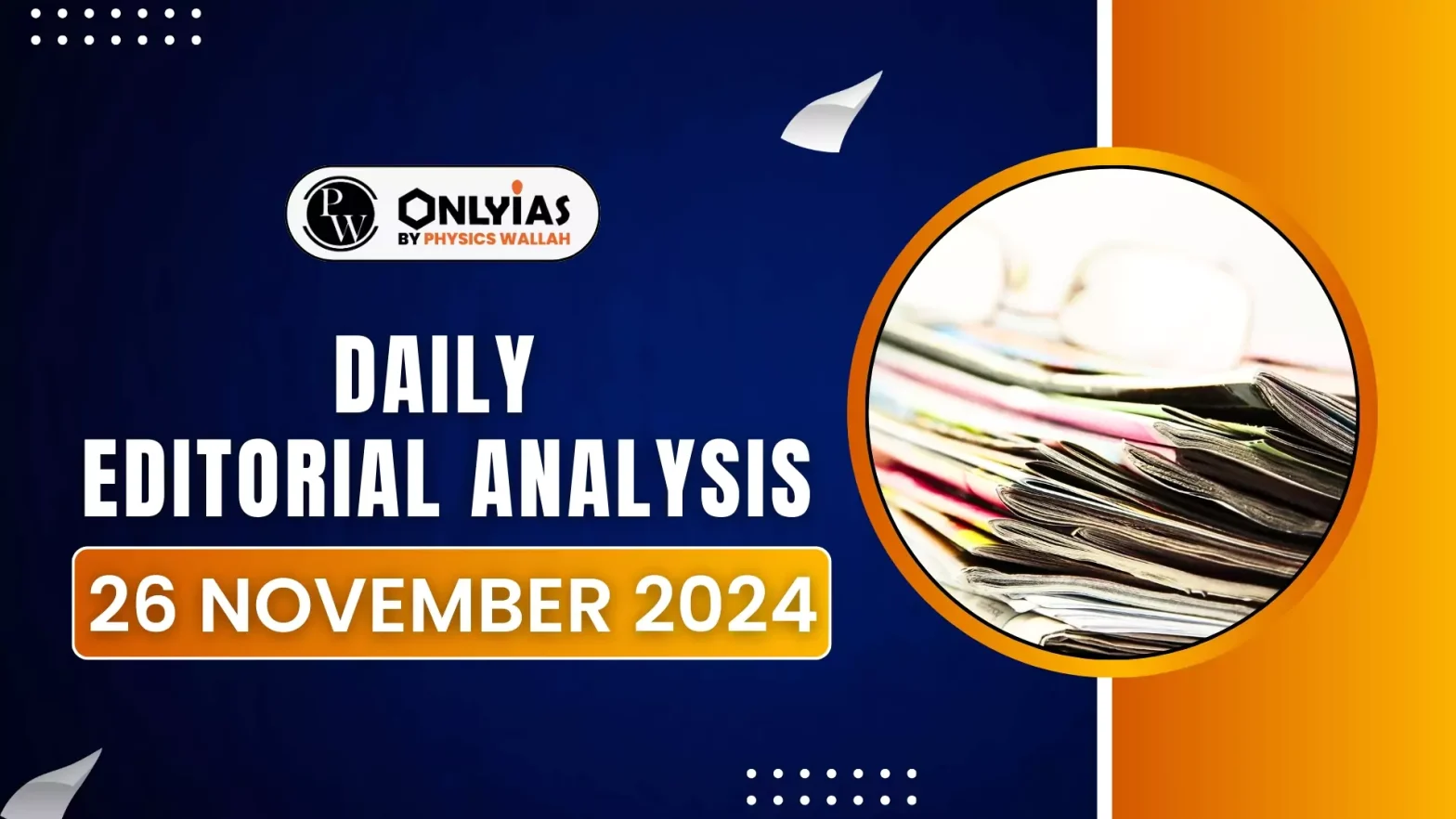The narrative surrounding the framers of India’s Constitution often centers on the “founding fathers,” overshadowing the critical role played by the “founding mothers”—the eminent women of the Constituent Assembly.
The Patriarchal Narrative
- Perpetuating Gender Biasness: The term “founding fathers” itself reflects a deeply patriarchal and paternalistic perspective.
- The significant contributions of the women in the Constituent Assembly, who co-authored the Constitution alongside their male counterparts, have largely been sidelined.
- Views of Achyut Chetan: Achyut Chetan, in his work Founding Mothers of the Indian Republic: Gender Politics of the Framing of the Constitution (2022), asserts that the Constitution was not merely shaped by the consent of women but also by their will.
- Chetan argues that each article of the Constitution represents a critical point of intersection in the history of Indian feminism, shaped by the will and dissent of the founding mothers.
- Views of Christine Keating: Christine Keating, in Framing the Postcolonial Sexual Contract: Democracy, Fraternalism, and State Authority in India (2007), highlights how the “founding fathers” of the Constitution entrenched the constitutional subjugation of women.
- Keating argues that the Constituent Assembly reached a compromise: women were given equality in public life through fundamental rights (that was applicable to all), but discriminatory personal laws were kept in the private sphere that continued to subjugate women.
Enroll now for UPSC Online Classes
The Founding Mothers and Uniform Civil Code (UCC)
- Intersectional Alliances: The founding mothers, particularly women like Amrit Kaur, Hansa Mehta, and Begum Aizaz Rasul, formed an intersectional alliance with Dr. B.R. Ambedkar in their shared quest for social revolution.
- Attempting to Dismantle Patriarchy: Together, the founding mothers and Ambedkar sought to dismantle the patriarchal ecosystem that permeated Indian society.
| Dr. B. R. Ambedkar, the first Law Minister of independent India, resigned in 1951 due to his differences over the Hindu Code Bill. |
- Uniform Civil Code (UCC): The founding mothers worked tirelessly within the Constituent Assembly to ensure that women’s rights were enshrined.
- One of their key demands was the inclusion of a Uniform Civil Code (UCC) as a part of the Fundamental Rights.
- Their Views on UCC: Hansa Mehta and Amrit Kaur recognized that such a code was essential to dismantling the social-patriarchal powers that upheld gender injustice.
- UCC in DPSP: Though the UCC was relegated to the Directive Principles of State Policy (DPSP), the founding mothers successfully ensured that these principles were declared “fundamental in the governance of the country,” signaling a moral commitment to their implementation.
Secularism and Women’s Emancipation
The founding mothers also engaged in crucial debates on the relationship between religion and the state.
- Limiting Religion for Gender Equality: Hansa Mehta, in the Sub-Committee on Fundamental Rights, attempted to limit the right to religion, fearing that it could hinder women’s rights to equality and social reform, particularly the abolition of practices like child marriage.
- She and Amrit Kaur pushed for the term “free practice of religion” to be replaced by “freedom of religious worship” to prevent religion from becoming a barrier to women’s emancipation.
- Amrit Kaur’s Dissent on Religious Freedom: Amrit Kaur’s note of dissent on the “Freedom of Religion” clause underscored her concern about the anti-woman tendencies within religious practices.
- She warned that unchecked religious freedom could invalidate progressive laws such as the Widow Remarriage Act, the Sarda Act, and even the law abolishing sati.
Equality Yet to Be Realized
- Kamaladevi’s Vision for Women’s Equality: Kamaladevi Chattopadhyay, one of the leading women activists and a member of the Constituent Assembly, believed that the Constitution heralded a new era for women in India, guaranteeing equality and justice.
- Unfulfilled Promises of Equality: However, this optimism was short-lived. In 1974, the Government of India’s report, “Towards Equality: Report of the Committee on the Status of Women in India”, concluded that the promises of equality made by the Constitution had not been fulfilled, even two decades after independence.
Check Out UPSC NCERT Textbooks From PW Store
Conclusion
As India celebrates its Constitution’s legacy, it is essential to recognize and honor the contributions of the founding mothers who, alongside their male counterparts, shaped the course of the Indian Republic. The realization of the promise of equality and justice, especially for women, will remain an unfinished task unless the vision of the founding mothers is fully realized in practice.
![]() 26 Nov 2024
26 Nov 2024
